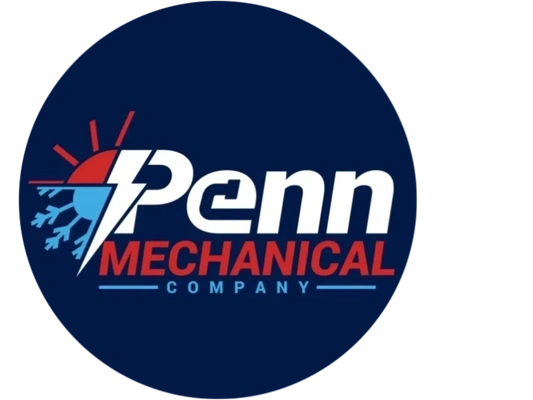Types of Water Heaters
Types of Water Heaters By Penn Mechanical Company
Choosing a water heater isn’t one-size-fits-all. The right system depends on your home’s layout, family size, fuel availability, and how you like to use hot water day to day. This parent page gives you a plain-English overview of each option so you can quickly narrow the field and know what to ask when you speak with Penn Mechanical Company.
How to Choose the Right Water Heater
Before you dive into the types below, keep these factors in mind:
- Fuel source: Do you have natural gas available, propane on site, or is electric your best bet?
- Hot-water demand: How many showers, loads of laundry, or back-to-back uses do you run during peak hours?
- Space & venting: Do you have room for a tank? Is there an exterior wall or vent path nearby?
- Budget & operating costs: Consider upfront price, installation needs, and ongoing utility costs.
Maintenance: Some systems need periodic flushing or descaling to stay efficient.
- BBB A+ Rated
- owner over 30 years business
- 100% Satisfaction Guarantee
- Fully Licensed & Insured
- On-Time Guarantee
- Upfront Pricing
Tankless Water Heater
A tankless (on-demand) water heater is a compact, wall-mounted unit that heats water only when a tap opens. Because there’s no storage tank, it frees up floor space and avoids standby heat loss, delivering a steady stream of hot water sized to your home’s simultaneous needs.
Proper design matters: gas models may require an upgraded gas line and code-approved venting, while electric versions need sufficient electrical capacity. Annual water heater maintenance—especially descaling in hard-water areas—helps preserve efficiency and performance.
Hot Water Heater
A standard tank water heater stores a set volume of hot water so it’s ready when you need it. Homeowners like the familiar, proven technology, wide parts availability, and generally lower upfront cost compared to other options. It’s a solid fit for predictable routines such as morning showers and evening dishes.
Keep in mind that tanks take floor space and can run out during heavy back-to-back use. Periodic flushing reduces sediment buildup, and checking the anode rod can help extend the tank’s service life.
Electric Water Heater
Electric water heaters are available in tank or tankless styles use heating elements instead of a gas burner. They’re a practical choice in all-electric homes or where venting a gas appliance is difficult, and they operate quietly.
To perform well, the home’s electrical service, wiring, and breaker size must match the unit’s requirements. Recovery time can be slower than comparable gas tanks, so correct sizing is important; pairing with smart controls or timers can also help manage energy use.
Natural Gas Water Heater
Natural-gas water heaters (tank or tankless) heat water with a burner and typically recover faster than similar-sized electric tanks, making them a good option for higher-demand households. Where natural gas service is available, they’re widely used and straightforward to service.
Safe operation requires proper combustion air, code-compliant venting, and adequate clearances around the burner area. Regular safety checks of gas connections and the vent path are recommended.
On-Demand Water Heater
On-demand often refers to tankless technology, but many people also use the term for compact point-of-use units installed near a sink or remote bathroom. These mini systems can deliver hot water to the fixture quickly and reduce water wasted while long lines warm up, making them a useful supplement to a whole-home system.
Even for point-of-use applications, correct sizing and adequate power or gas supply are important. They’re well-suited to guest baths, garages, studios, and additions.
Propane Water Heater
Propane-fired water heaters provide gas-like performance in areas without natural-gas service. Available in both tank and tankless versions, they can support anything from a single bathroom to large households and are common on rural properties or where other appliances already use propane.
Safe, reliable operation depends on a properly sited LP tank, compliant gas piping, and correct venting for combustion models. Routine leak checks and regulator inspections are good practice.
Power Vent Water Heater
A power-vent water heater is a tank-type unit with a built-in fan that pushes exhaust through approved venting materials. This design allows longer or horizontal vent runs and opens up installation locations where a standard vertical flue isn’t practical.
Because the fan is powered, the unit needs a nearby electrical outlet, and the fan adds moving parts that benefit from routine checks. Following the manufacturer’s guidelines on vent length, elbows, and materials helps ensure safe, reliable operation.
Not Sure Which System Fits Your Home?
Here’s a simple way to think about it:
- Limited space or frequent back-to-back use? Consider tankless/on-demand.
- Predictable daily routines and a lower upfront budget? A standard tank can be a strong choice.
- No gas line? Electric models (tank or tankless) may be the most straightforward path.
- No natural gas service? Propane brings gas performance off the grid.
- Challenging vent path? Power-vent tanks add venting flexibility.
What Penn Mechanical Company Does for You
- Right-Sizing & Recommendations: We look at fixture count, simultaneous use, and layout to match the system to your actual life not just a chart.
- Code-Compliant Installation: Proper gas piping or electrical, approved venting, and safe clearances.
- Clean, Organized Work: Neat installs that respect your home and make future service easier.
- Maintenance & Repairs: Flushes, descaling, anode-rod checks, and fast diagnosis if something isn’t right.
Talk Through Your Options with a Pro
A short conversation can save years of frustration. Tell us how you use hot water, what space you have, and which fuel is available we’ll outline clear choices and next steps.
Call Penn Mechanical Company at 484-877-8864 or request a visit at pennmechanicalcompany.com.
Get the hot water you want, installed the right way, with a system that fits your home.
